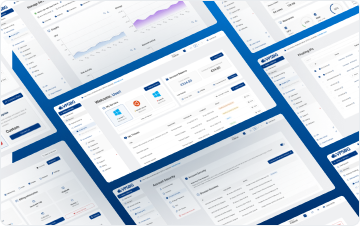Over the last week, news has come out that RHEL was intending to make changes that could shake up the entire landscape for all upstream Linux distributions with speculations being that the company would be making the source code closed source. Sadly for some of the most popular upstream projects, these weren’t only speculations as the official RHEL statement confirmed these suppositions.
Since then, RHEL has received a substantial amount of backlash by the community that are all claiming that these actions are completely against the open-source model that RHEL promised to maintain over the years. The general public opinion seems to be that these changes are specifically targeted at smaller to medium sized businesses, organizations and companies, making it seem like RHEL only wants to make their product available for larger corporations and enterprise businesses that have the financial capabilities to pay for the product.
But is that really the case? What do these changes mean to other upstream projects like Alma and Rocky and which distro is now looking like a prime candidate to become the new go-to choice for everyone? Let’s discuss!
Summary of RHEL’s statement
The story here consists of 2 parts. The first official release came on June 21st, with RHEL stating that CentOS Stream will be becoming the only public source code repository. The main idea behind the CentOS stream project was for RHEL to simplify their working process and to avoid maintaining a number of different operating systems. However, making the source code available only to customers and partners is what ultimately led to the public outlash.
Due to the outrage, RHEL released a second statement, sharing more information on why these changes were being made and how that would affect the ecosystem. While it is understandable that RHEL would want to make such changes from a financial, productional and maintenance standpoint, this does defeat the purpose of labeling the project as ‘open-source’. It is true that the developers do need to get appropriately rewarded for their work even if they are working on an open-source project.
However, the public opinion seems to be that this was not the correct way for things to go with many smaller organizations, like charities in particular, being unable to pay the required amount of money to purchase the product. Additionally, these changes are also quite impactful for other upstream projects like AlmaLinux and Rocky Linux that rely heavily on the source code.
AlmaLinux & Rocky Linux’s response
Rocky was quite quick in the response, releasing an official press release on their website, stating that the project will continue to operate as intended and they are hopeful that they will continue to develop the operating system regardless of these RHEL ‘restrictions’.
AlmaLinux was also fast when it came to addressing these issues and making changes. In their official AlmaLinux statement, they were devoted to continuing work on the project, mentioning that they would be looking to collaborate with other projects in the ecosystem in order to put out security patches that would be tested and compatible with RHEL’s official products, while also ensuring the community that they will not be breaching any licensing rules.
Is Debian currently looking like the best alternative?
Ever since Red Hat discontinued the CentOS project, a large number of community members began looking for CentOS alternatives with Rocky and Alma being two of the most common choices. However, Debian-based systems such as Ubuntu have also started to gain popularity over the last couple of years due to the many new and exciting features that these systems began to offer, making it a very lucrative option for those looking to make the change.
We at VPSBG strongly support all open-source software and are interested in seeing what these changes will mean for the overall Linux landscape. As a hosting provider, we still offer CentOS 7 as an operating system for our cloud servers, in addition to multiple Rocky Linux (8/9) and AlmaLinux (8/9) versions as well as a number of different Debian & Ubuntu versions including the latest - Debian 12.





